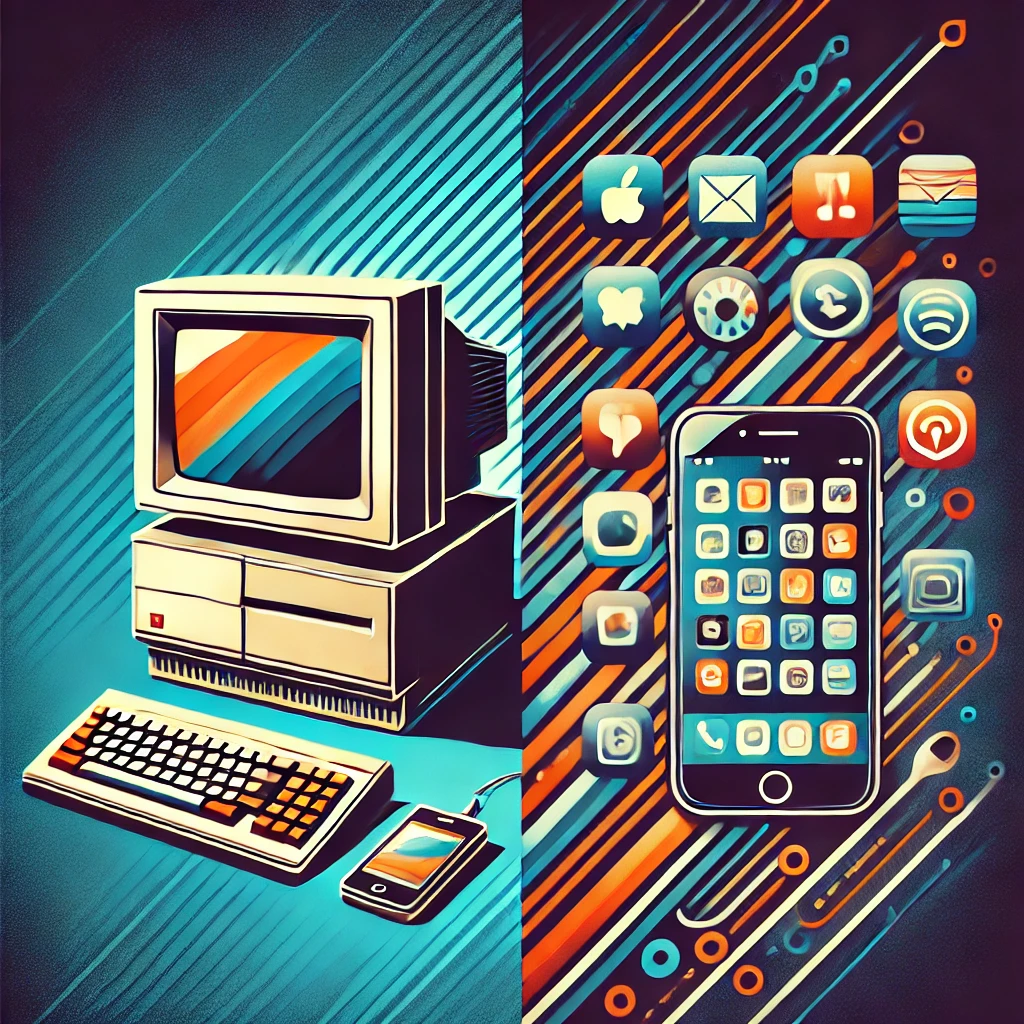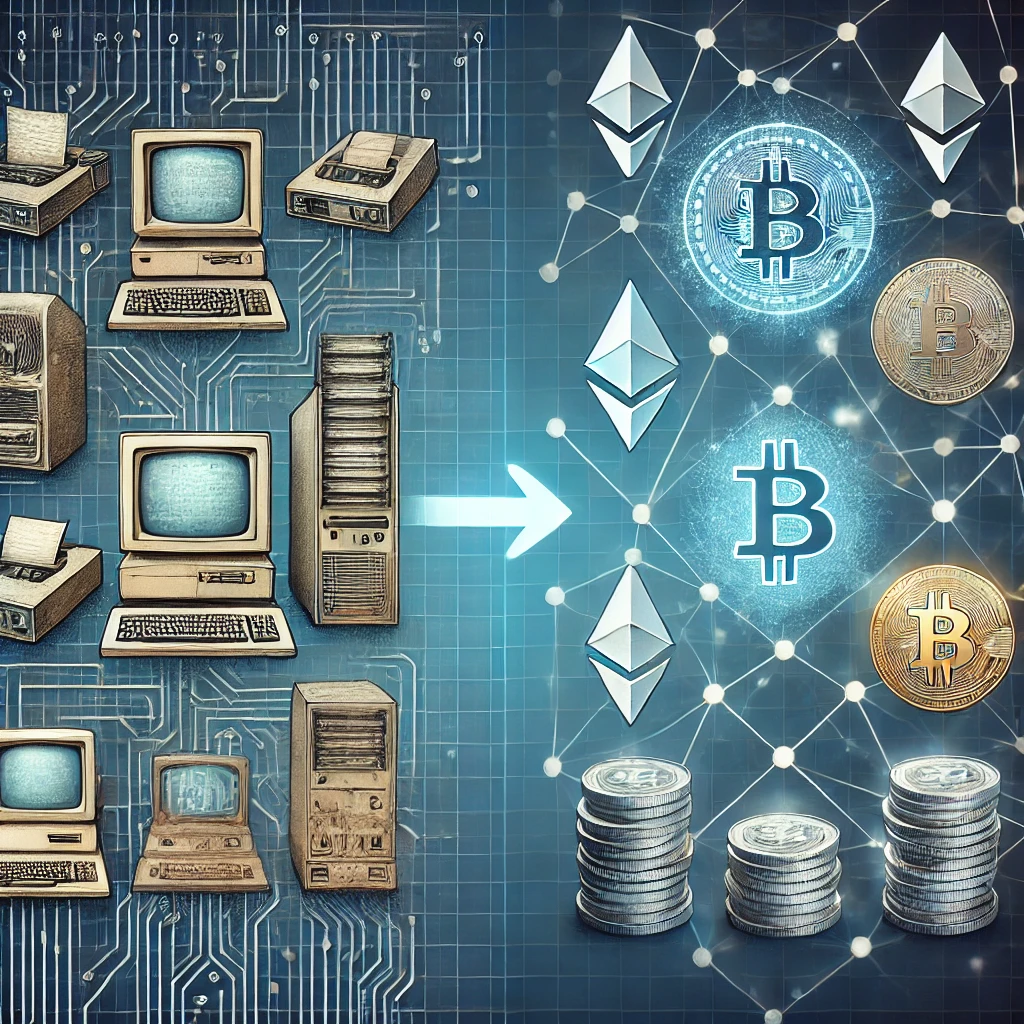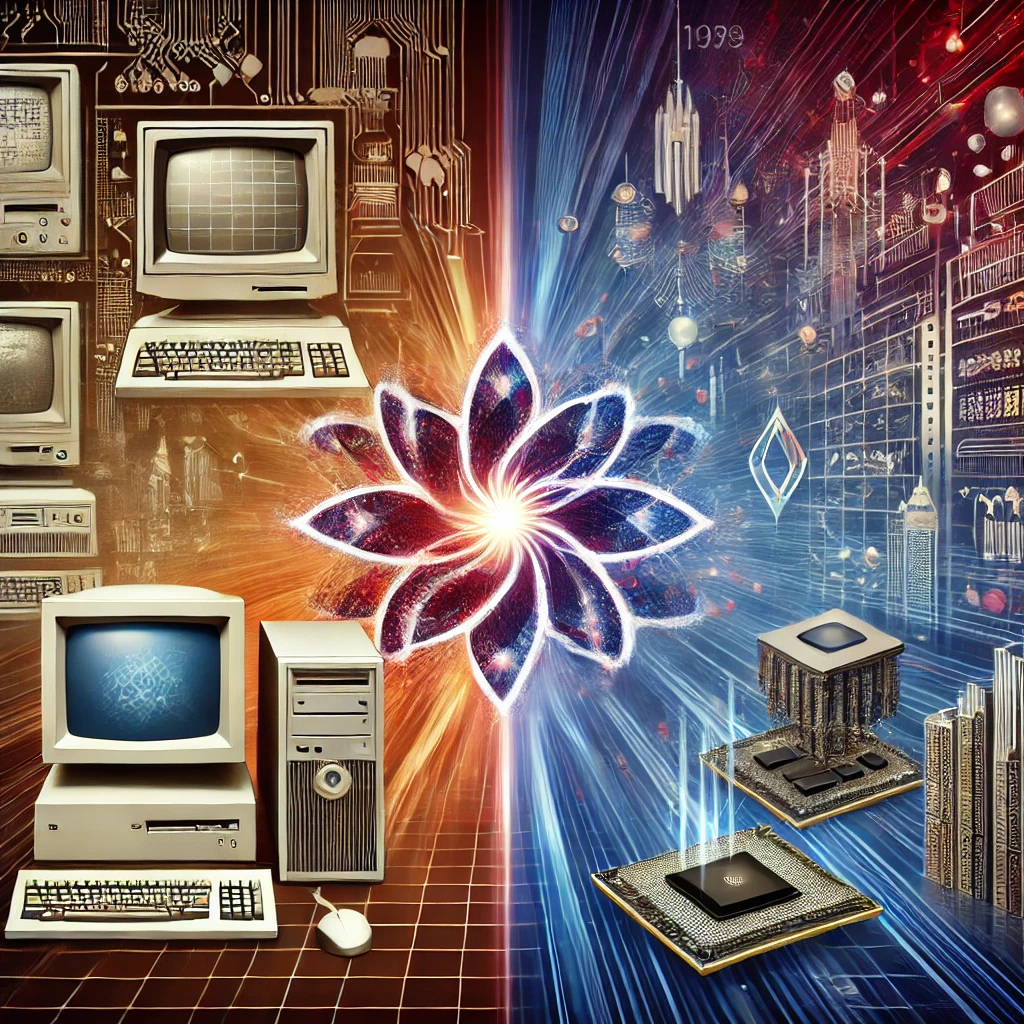The Smartphone Revolution: A Parallel to the PC Boom

The late 20th century was defined by the personal computer (PC) boom, a technological revolution that transformed industries, reshaped social interactions, and redefined how people worked. Personal computers brought the power of digital processing into homes and offices, enabling a new wave of productivity and connectivity. Today, smartphones have taken on a similar role, acting as the modern equivalent of PCs, driving massive shifts in the way we live and work. In many ways, the rise of smartphones mirrors the PC revolution, but with an even greater impact due to their portability and always-connected nature.
In the 1980s and 1990s, PCs became the cornerstone of personal and professional life. They allowed individuals to perform tasks that were previously only possible on large mainframe computers, such as word processing, data analysis, and communication via email. PCs were a game-changer, empowering people to manage their own digital environments and create new opportunities in education, business, and entertainment. They were the driving force behind the digital age.
Fast forward to the early 2000s, and we see the rise of smartphones—a device that not only provided computing power in the palm of our hands but also revolutionized communication. Just as PCs democratized access to digital tools, smartphones made digital connectivity ubiquitous. With the advent of mobile internet, people could browse the web, send emails, and use a variety of applications on the go. This combination of mobile computing and constant connectivity became the foundation for a new wave of innovation.
One of the most significant parallels between PCs and smartphones lies in the app ecosystem. Much like the software boom that accompanied the rise of personal computers, smartphones have given rise to a vast array of apps that cater to every aspect of life—from social media and entertainment to finance and healthcare. The app ecosystem has become a central hub for innovation, creating new industries and reshaping existing ones. Mobile apps have allowed individuals to connect, create, and collaborate in ways that were unimaginable during the PC boom.
Another key aspect of the smartphone revolution is the seamless integration of digital tools into everyday life. With smartphones, people no longer need to sit at a desk to access the internet or use digital applications. Mobile devices offer an unprecedented level of convenience, allowing users to work, communicate, and entertain themselves from virtually anywhere. This mobility has led to the rise of the gig economy, remote work, and new business models, further blurring the lines between the personal and professional spheres.
Just as PCs enabled the creation of new solutions in the workplace, smartphones are driving a new era of digital solutions in our personal lives. From mobile banking to fitness tracking, smartphones have transformed how we manage our health, finances, and daily routines. The ability to access real-time information, communicate instantly, and perform tasks on the go has fundamentally changed the way we approach problems and seek solutions.
As with the PC revolution, the rise of smartphones has also brought about significant social changes. Social media, driven by mobile connectivity, has reshaped how we interact with one another, creating new forms of communication and community-building. Just as PCs empowered people to connect through email and forums, smartphones have expanded this connectivity, allowing for instant messaging, video calls, and the rise of social networks that connect billions of users around the globe.
In essence, the smartphone revolution represents the next stage in the evolution of personal computing. While PCs brought the digital world to our desks, smartphones have brought it to our pockets, enabling unprecedented access to information and services. Much like the PC boom of the late 20th century, smartphones have become catalysts for massive social and technological shifts, redefining the way we live and work in the modern era. As technology continues to advance, the smartphone's role in shaping our digital future will only become more pronounced.


Isabella Lee
Eager to read more about quantum computing developments!
Robert Jones
Informative read on the future of AI solutions.